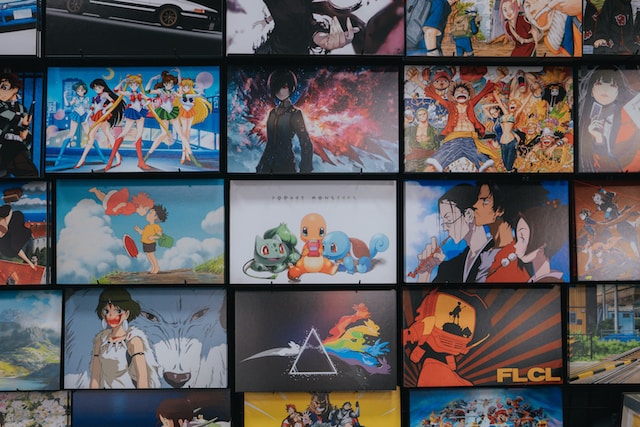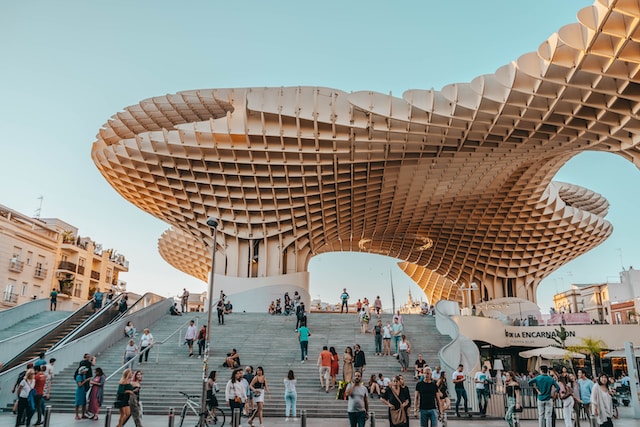Conventions present artists with a unique opportunity to display their work, engage with fans, and network with industry professionals. The dynamic and often chaotic environment can be challenging to navigate, but with the right approach, artists can excel and make the most of their convention experience. This in-depth guide provides essential tips for artists to succeed at conventions and create lasting connections within the industry.

1. Research And Choose The Right Convention
Selecting the appropriate event is crucial. There are conventions for comic books, anime, video games, and many other forms of entertainment. Research various conventions to identify those that cater to your specific niche or genre. Attendee demographics, the convention’s focus, and a history of strong artist attendance are key factors to consider. Also, investigate the event’s size, location, and reputation. By choosing the right event, you’ll optimize your chances of connecting with your target audience.
2. Plan Your Budget And Set Goals
Account for expenses such as booth rental, travel, accommodation, promotional materials, and inventory production. Be realistic and allocate funds accordingly. Set measurable goals, such as sales targets or the number of new connections, to track your progress and success. A well-planned budget and clear objectives will help you manage costs and maximize your return on investment.
Set measurable goals, such as sales targets or the number of new connections, to track your progress and success. Learn all the tips and tricks and learn how to sell online and grow sales.
3. Offer Unique Convention Exclusives
Generate excitement by offering convention-exclusive discounts or creating limited-edition products. This strategy encourages impulse purchases and gives attendees a sense of urgency and exclusivity. Additionally, it can help drive traffic to your booth and increase your visibility. Consider offering something like promotional tote bags to customers who spend a certain amount. Not only will this encourage more sales, but it provides free advertising throughout the convention as other guests see your logo on the bag.
4. Prepare Your Inventory
Offer a diverse range of products, including original artwork, prints, merchandise, and commissions. Cater to different budgets with various price points. Ensure you have ample inventory for the entire convention, but avoid overstocking to minimize transportation and storage costs. Consider restocking options if the event lasts multiple days. Test new product ideas and be prepared to adapt based on the audience’s response.
5. Invest In Eye-Catching Booth Design
Your booth serves as your storefront at the convention. Invest in an eye-catching design that reflects your art and personality. Use banners, lighting, and signage to draw attention and make your space inviting. Organize your products in an aesthetically pleasing and accessible manner. Consider incorporating interactive elements, like live demonstrations or digital displays, to engage visitors. A well-designed booth should also facilitate efficient transactions and provide ample storage for your inventory.
6. Engage With Attendees And Offer Unique Experiences
Be friendly, approachable, and proactive in engaging with convention-goers. Answer questions about your work, share your artistic journey, and make genuine connections. Interacting with attendees can lead to sales, commissions, and long-term fans. Consider offering freebies like stickers or buttons as tokens of appreciation. Offer unique experiences, such as on-the-spot sketches, personalized prints, or autographed items, to leave a lasting impression.
7. Network With Fellow Artists And Industry Professionals
Conventions provide an excellent opportunity to network with fellow artists, vendors, and industry insiders. Build relationships, share insights, and learn from others’ experiences. Networking can lead to collaborations, future convention opportunities, and a stronger sense of community within the industry. Attend networking events, parties, or mixers to maximize your networking potential.

8. Promote Your Presence
Utilize social media, email newsletters, and other marketing channels to promote your presence at the convention. Share updates, teasers, and photos of your booth to generate buzz and drive traffic to your space. Leverage hashtags and event-specific social media accounts to reach a wider audience. Consider partnering with influencers, bloggers, or media outlets to boost your exposure.
9. Attend Workshops, Panels, And Educational Sessions
Take advantage of workshops, panels, and educational sessions offered at the convention. These events can provide valuable insights, help you stay current with industry trends, and foster personal and professional growth. Actively participating in these sessions can also help you connect with other artists and industry professionals.
10. Maintain A Healthy Work-Life Balance
Conventions can be physically and mentally demanding. Prioritize self-care by staying properly hydrated, eating well, and getting enough rest. Taking breaks and pacing yourself throughout the event will ensure you remain energized and focused.
11. Track Your Sales And Gather Feedback
Maintain a detailed record of transactions, including sales, commissions, and expenses. This data will help you assess your success, identify popular items, and refine your inventory and pricing strategy for future conventions. Gather feedback from customers and fellow artists to improve your offerings and booth experience.
12. Follow Up Post-Convention
After the convention, follow up with new contacts, clients, and fans through social media or email. Thank them for their support, share updates on upcoming events, and maintain a connection to foster long-term relationships. Use post-convention momentum to further build your online presence and engage with your audience. Analyze your results and use the insights to refine your strategy for future events.



